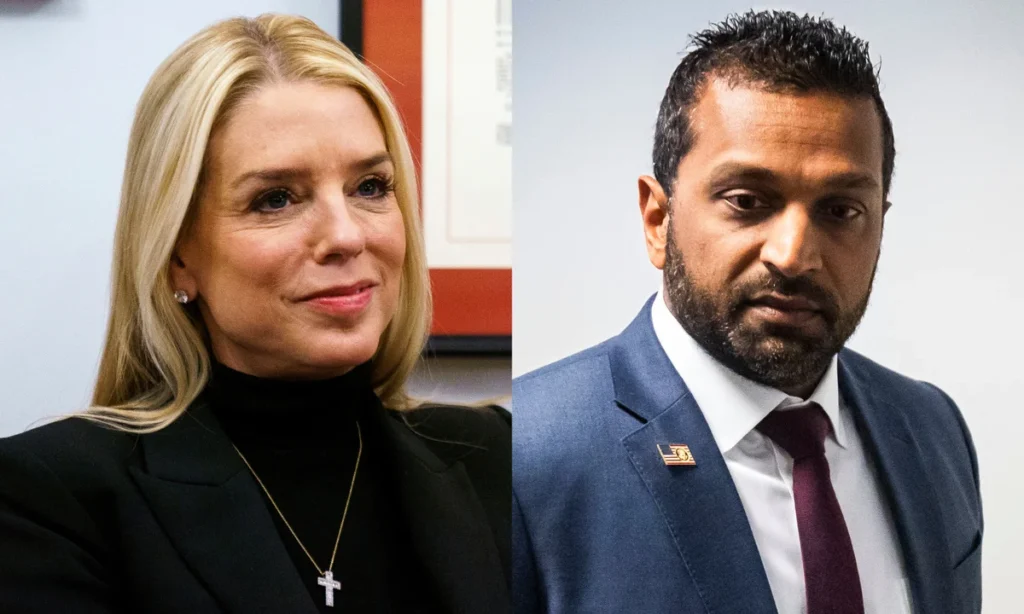Journalists love to parade around as defenders of the First Amendment whenever they’re asked to reveal a source. In reality, cases where they actually pay a price for that defiance are few and far between. One of the most famous examples is former New York Times reporter Judith Miller, who became a cause célèbre during the Valerie Plame affair.
She sat in a jail cell for 85 days before finally agreeing to limited testimony before a grand jury. Miller’s reluctant cooperation eventually led to Lewis “Scooter” Libby being exposed—while her other sources remained protected.
But here’s the glaring double standard: what happens when it’s not a journalist shielding a source, but a federal agent violating a citizen’s privacy? When the FBI “outs” a private citizen—illegally—and that person wants accountability in civil court, suddenly the rules change.
There’s no First Amendment privilege, no army of media lawyers rushing to defend the individual’s rights. Instead, the FBI hides behind layers of bureaucracy and shrugs off the violation as though constitutional protections don’t apply to ordinary Americans.
Take the case of Yanping Chen. A decade ago, Chen—a Chinese American scientist—found herself at the center of an FBI probe. Agents suspected she had lied on immigration forms about her supposed ties to a Chinese rocket program. Her home was raided, personal property seized.
And yet, despite the spectacle of a federal investigation, Chen was never charged with a crime. Two years later, Fox News reporter Catherine Herridge published a story on the case. Herridge’s reporting included details and even personal items seized during the FBI raid—items that should have been protected under the Privacy Act.
The consequences for Chen were devastating. Her reputation was destroyed, her business collapsed, and the Department of Defense abruptly canceled her contracts. Again, all of this happened without a single charge ever being filed.
So she did what any citizen who still believes in equal justice would do: she sued. At the heart of her civil case was a basic question—who inside the FBI illegally leaked her private information to the press? Who decided her right to privacy under federal law was expendable?
Appeals followed: “Yanping Chen alleges that federal officials violated the Privacy Act by disclosing records about her compiled as part of an FBI investigation. The records were published by Fox News. In discovery, Chen sought to compel Catherine Herridge—one of the journalists involved in publishing the records—to identify who had leaked them.”
This entire saga began a decade ago with an FBI investigation that produced no charges against Yanping Chen. Yet the damage to her life and livelihood was permanent. Herridge has since refused to reveal her FBI source—even under court order.
Herridge has tried to defend herself with two arguments. First, she claims that most of what she used was already in the “public domain,” so the illegally obtained information was trivial. Second, she argues that Chen’s lawsuit is essentially frivolous since “only some” of her reporting relied on illegally leaked material.
Fortunately, the appeals court didn’t buy it:
[S]o long as Chen establishes that some Privacy Act violation harmed her, she may recover actual or statutory damages if it was willful. 5 U.S.C. § 552a(g)(4)(A); Doe v. Chao, 540 U.S. 614, 627 (2004). In sum, Herridge’s arguments at most suggest that Chen is likely to recover only a small amount of damages, but that does not render her claim frivolous.
Having done so, the Court then established “more precise guidelines … to determine how the balance should be struck in a particular case.” And as explained above, it crystallized those guidelines into two inquiries “of central importance”—whether the information is “crucial” to the case and whether the litigant could obtain it from a “reasonable alternative source.”
Herridge nonetheless asks us to rule in her favor because (1) Chen’s Privacy Act claim is frivolous or meritless and (2) Lee conflicts with prior circuit precedent and therefore does not bind us. We reject both contentions.
The Appeals panel also dismissed her reliance on the First Amendment argument, as well as her lawyers’ citation of dissents in Lee v. Department of Justice, 413 F.3d 53 (D.C. Cir. 2005).
After exhausting the Lee requirements over almost eight years, Chen was again requesting that the court compel Herridge to reveal the source of the illegally obtained FBI file information:
In short, if the First Amendment itself does not entitle Herridge to disobey discovery obligations imposed on every other citizen in the circumstances of this case, we see little reason to create that entitlement as a matter of judge-made common law.
The court reached a unanimous decision: Herridge must reveal the source of the Privacy Act violation. A lower court had previously fined her $800 a day for refusing to disclose the source after her deposition, but this order was stayed pending appeal. Now that the order will take effect, we will see if Herridge continues to conceal her source.



